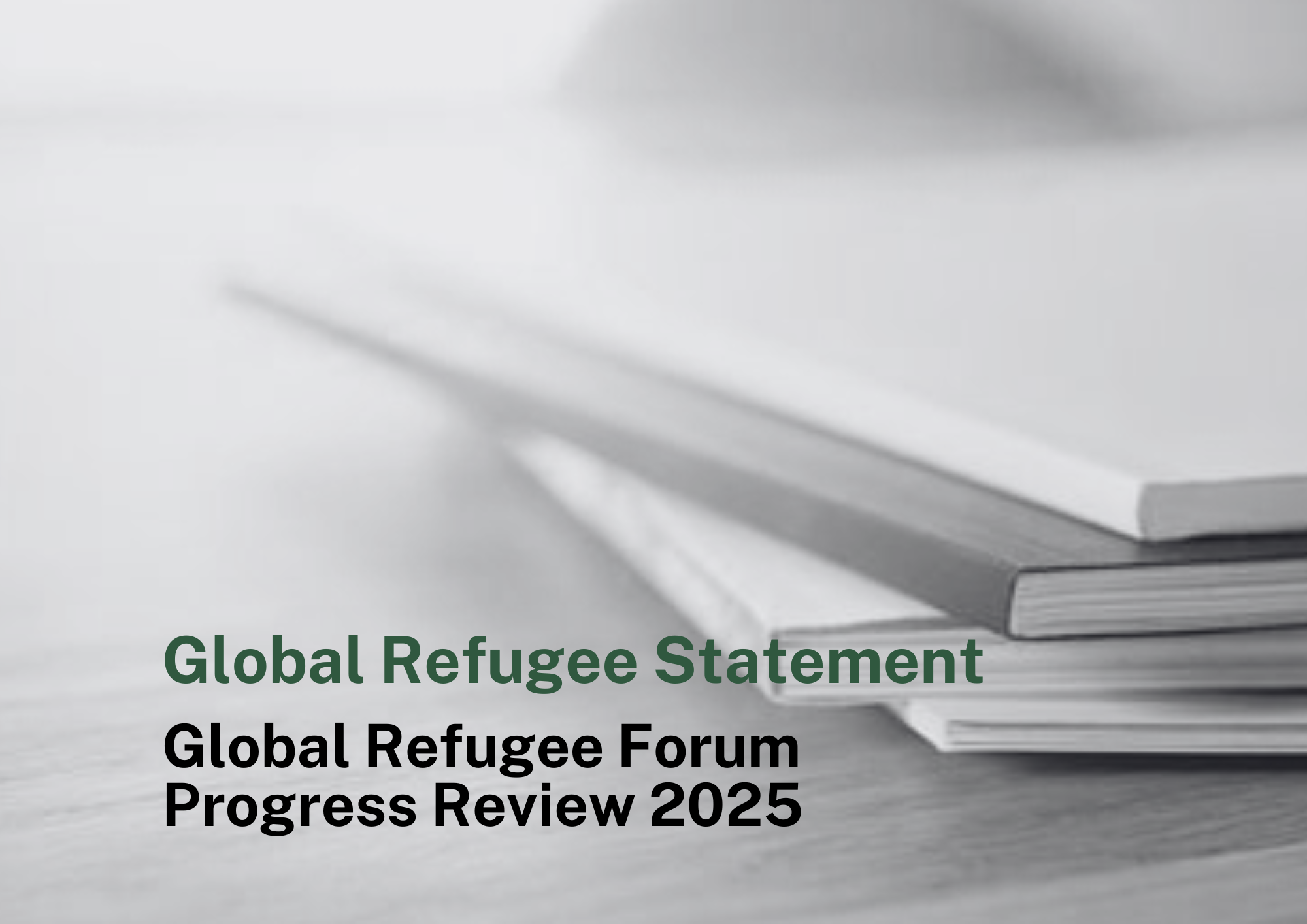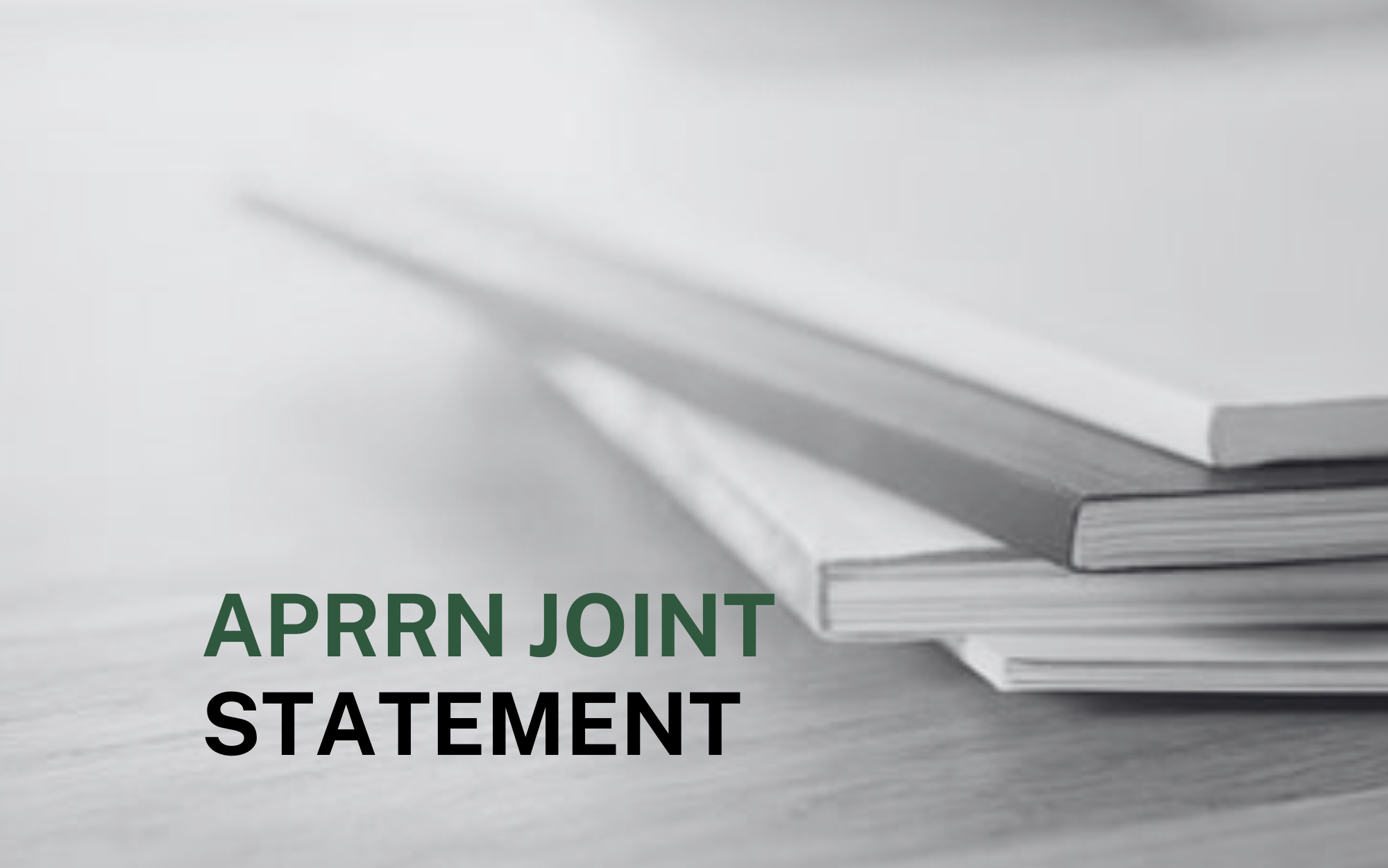URGENT STATEMENT: Hong Kong’s Regressive Legislative Amendments Risk Undermining Protection for Refugees and Asylum Seekers
16 December 2020
The Asia Pacific Refugee Rights Network (APRRN) is concerned that the Hong Kong1 Government’s proposals to amend the Immigration Ordinance contravene international standards and undermine the fairness of Hong Kong’s refugee screening mechanism. The Hong Kong Legislative Council must establish a Bills Committee at the Council Meeting this Wednesday (16 December) to scrutinise these proposals in detail and ensure that any amendments to the Immigration Ordinance respect, protect, and fulfil Hong Kong’s international human rights obligations, including the core principle of non-refoulement.
While Hong Kong is not a party to the 1951 Convention Relating to the Status of Refugees, it is party to human rights treaties including the International Covenant on Civil and Political Rights, the Convention against Torture, and the Convention on the Rights of the Child. Human rights protections under these treaties are enshrined in the Basic Law and the Hong Kong Bill of Rights. Asylum seekers and refugees enjoy equal protection of these rights, which the proposed amendments risk undermining.
Despite these safeguards, Hong Kong’s refugee recognition rate is below 1%, among the lowest in the developed world. Claimants from high-risk countries are routinely rejected protection. The low recognition rate is indicative of systemic concerns within the Unified Screening Mechanism (USM), including poor-quality decisions, lack of procedural and substantive fairness, and lack of legal representation for claimants. Concerns also exist regarding broad statutory powers to detain refugees and asylum seekers, without effective judicial oversight or monitoring.
Regrettably, rather than addressing these concerns, the proposed amendments introduce regressive changes to Hong Kong’s protection landscape.
The quality of first-instance decisions in Hong Kong is poor, recognising only 40% of successful asylum claims. The appeals process is therefore an essential protection against deporting or detaining people entitled to protection. Instead, the proposed amendments would make it more difficult for people to appeal by reducing hearing notice periods, restricting the late filing of appeal notices, and restricting the submission of new evidence on appeal, thereby raising procedural hurdles and undermining due process. Only about 8% of claimants are represented by publicly funded lawyers on appeal, and claimants who are illiterate, speak minority languages, suffer from health difficulties, traumatised due to persecution or are detained will face additional difficulties in dealing with complex legal proceedings.
The proposed changes would allow the Hong Kong Government to begin deportation proceedings— including liaising with countries of origin—before claimants have the opportunity to exercise their right to appeal. These breaches core principles of confidentiality during the asylum process and potentially increases persecution and retaliation risk for the claimant. As the majority of asylum applications are substantiated on appeal or following judicial review challenges, the impact of this proposal must not be underestimated.
Proposals to enhance the use of immigration detention contravene the clear and established principle that immigration detention must be applied as an exceptional measure of last resort, for the shortest period, and only if justified by a legitimate purpose. Further, arming officers at detention centres reinforces false constructions of refugees and asylum seekers as ‘criminals’. Alarming reports of human rights violations at detention centres, such as the punitive use of solitary confinement, underscore the critical necessity of minimising the disproportionate use of force. Arming immigration officers only increases this risk. Increasing immigration detention additionally places centre staff, detainees, and visitors at risk of contracting COVID-19, which has been shown to spread rapidly in these centres.
We call on the Hong Kong Government to conduct meaningful and comprehensive consultations with stakeholders, including civil society organisations and members of the refugee community, prior to introducing any legislative amendments. Reforms to the USM must be in line with international standards and Hong Kong’s human rights obligations.
APRRN echoes observations made by the United Nations Committee against Torture and recommends the Hong Kong Government enhance the fairness and transparency of the USM by:
- Limiting immigration detention to last resort
- Establishing a fully independent mechanism to investigate complaints and monitor places of detention
- Allowing sufficient time for claimants to prepare for their asylum application, as well as to obtain and present crucial evidence
- Improving claimants’ access to publicly funded legal assistance
- Developing comprehensive guidance for asylum adjudicators, including on interviewing vulnerable claimants and credibility assessments
- Publishing redacted versions of Torture Claims Appeal Board decisions
-END-
1 Formally the Hong Kong Special Administrative Region, China
The Asia Pacific Refugee Rights Network (APRRN) is a network of 450+ civil society organisations and individuals from 29 countries committed to advancing the rights of refugees in the Asia Pacific region. APRRN aims to advance the rights of refugees and other people in need of protection through joint advocacy, capacity strengthening, resource sharing and outreach.
Media Contacts:
Preston Cheung, Advocacy and Communications Officer, Justice Centre Hong Kong (APRRN member)
Tel: +852 9366 8813; Email: preston@justicecentre.org.hk
Themba Lewis, Secretary General, APRRN
Tel: +66 (0) 99 481 1595; Email: themba@aprrn.org; Fax: +66 2 234 2679
Janeen Sawatzky, Programme Coordinator, APRRN
Tel: +66 (0) 98 252 5102; Email: janeen@aprrn.org; Fax: +66 2 234 2679
Recommended

Dec. 15, 2025
Global Refugee Statement – Global Refugee Forum Progress Review 2025
Around the world, families are running out of places to go. The scale of global displacement remains extraordinarily high, with 117.3 million people forced to flee, not because they chose to move, but because staying meant persecution, violence, or the collapse of their basic rights and safety. Behind every statistic is a person who once had a home, a community, and a future rooted in the ordinary rhythms of life. This reality reminds us that the systems designed to protect people in times of crisis are under severe strain.

Sept. 22, 2025
Upholding Not Undermining International Law Civil Society Open Letter to States
In advance of this week’s UN General Assembly High-level meeting, speeches by Heads of State and Government and reported efforts to enlist UN Member States in an attempt to undo international legal protections for refugees, 271 civil society organisations released an open letter to UN Member States calling on them to uphold, preserve, strengthen, and celebrate international refugee, human rights, and humanitarian treaties—and to reject efforts to undo or undermine legal norms.

July 21, 2025
APRRN deeply saddened by the loss of Ravi Hemadri
For over 25 years, Ravi dedicated his life to community mobilisation, training, advocacy, and research. Our community of practitioners and advocates working on the rights of refugees and other vulnerable people on the move in Asia Pacific has lost a friend and colleague. But his legacy will continue to inspire those who worked with him. Our heartfelt condolences go out to his family and loved ones.